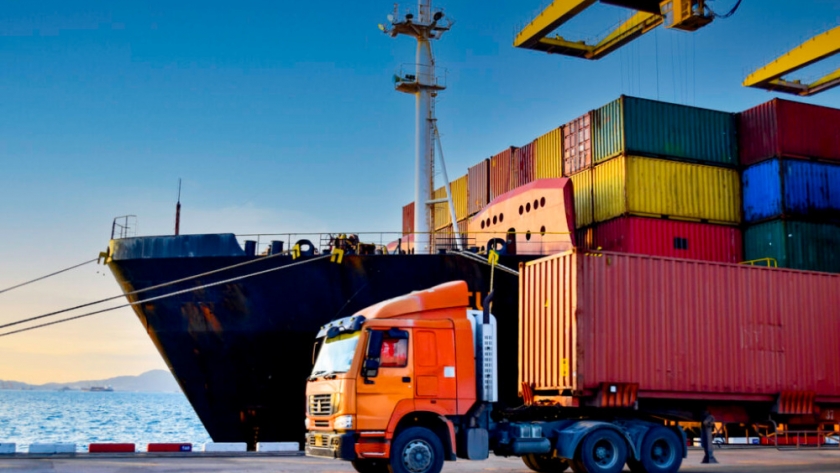
By Agroempresario.com
A sweeping new wave of tariffs announced by the Trump administration has triggered alarm across the U.S. food and agriculture sector, with leading industry groups warning that the measures could destabilize supply chains, inflate food prices, and harm both farmers and consumers.
In a bold executive order released Wednesday, President Trump declared a 10% tariff on all imports starting April 5, alongside even higher reciprocal tariffs for countries with which the U.S. runs significant trade deficits. These new duties—ranging from 20% to 49% for key partners like China, the EU, Vietnam, and Japan—exclude only a limited list of products, such as steel, aluminum, energy, and selected pharmaceuticals.
The agricultural community is responding with swift and vocal opposition. Dozens of food and farming organizations have united to urge the White House to reconsider or at least offer exemptions for critical products not readily available within U.S. borders.
Zippy Duvall, president of the American Farm Bureau Federation, emphasized that American agriculture is uniquely exposed to the risks of trade wars. “Increased tariffs threaten the economic sustainability of farmers who have lost money on most major crops for the past three years,” Duvall said. “More than 20% of farm income comes from exports, and farmers rely on imports for crucial supplies like fertilizer and specialized tools. Tariffs will drive up costs while retaliatory measures will shrink our export markets.”
The U.S. food system depends on global trade not only for selling its products but for sourcing ingredients, packaging materials, and equipment. Disruptions in this web threaten to ripple across the entire supply chain, from farm to fork.
Thom King, CEO of Icon Foods, which imports key food ingredients like sweeteners, was blunt in his assessment: “It’s a shitshow. Our phones have been ringing off the hook and folks are freaking out.” King noted that his company began preparing for possible trade disruptions months ago, building stock and securing long-term deals with clients. But even with those precautions, uncertainty reigns.
“What I find vexing is that the tariff is far more than what most folks in our industry are making in a margin,” he added. “These measures will crush small and mid-sized food companies.”
Similarly, the Consumer Brands Association (CBA), which represents major packaged food manufacturers, cautioned against a blanket approach. “Most U.S. consumer packaged goods are already made in America,” said Tom Madrecki, VP of supply chain resiliency at CBA. “But for critical ingredients that cannot be sourced domestically, tariffs will only raise prices without increasing U.S. production capacity.”
Perishables like fruits, vegetables, and flowers are especially vulnerable. Cathy Burns, CEO of the International Fresh Produce Association, urged policymakers to exempt fresh produce from the new tariffs. “Many fruits and vegetables simply cannot be grown year-round in the U.S.,” Burns said. “Tariffs will raise grocery prices without boosting domestic agriculture.”
Restaurants, which rely on a stable supply of fresh ingredients, are also raising concerns. The National Restaurant Association warned that tariffs would make it harder to maintain consistent menus, drive up costs, and impact food service businesses across the country.
Jay Timmons, CEO of the National Association of Manufacturers, called on the administration to clarify its trade policy and reduce uncertainty. “The stakes for manufacturers could not be higher,” he said. “New tariffs threaten jobs, investments, and our ability to compete globally.”
Retailers echoed this sentiment. Michael Hanson of the Retail Industry Leaders Association stated that the tariffs were not strategically targeted and would hurt everyday American families. “These newly announced tariffs — and the expected retaliatory tariffs — risk destabilizing the U.S. economy,” Hanson warned.
The agtech sector is also bracing for impact. Naveen Sikka, cofounder of biofuel startup Terviva, said the effects would be complex. “When growers face macroeconomic pressures, their willingness to invest in new technologies goes down,” he noted.
Still, Sikka saw a possible silver lining for U.S. producers. “This could give a short-term boost to domestic citrus and biofuel feedstocks,” he said. “But overall, it’s a cloudy picture.”
Opinions within the dairy sector are divided. Becky Rasdall Vargas of the International Dairy Foods Association criticized the tariffs, warning that they “risk undermining our investments” and raising costs for both businesses and consumers.
Conversely, the National Milk Producers Federation and U.S. Dairy Export Council viewed the tariffs as a potential bargaining chip. “These measures can be a useful tool for negotiating fairer terms of trade,” said Gregg Doud, NMPF president. “If Europe retaliates, we encourage the Administration to respond by raising tariffs on European cheeses and butter.”
Meanwhile, the Association of Equipment Manufacturers, which includes brands like John Deere, expressed concern that tariffs would stall investment decisions. “Manufacturers need a stable environment to plan long-term,” the group stated. “We support the goal of building more in America, but uncertainty stifles growth.”
Experts warn that the U.S. may be repeating past mistakes. Sophia Murphy of the Institute for Agriculture and Trade Policy pointed out that during the first Trump administration, retaliatory tariffs devastated soybean exports to China, resulting in a $23 billion taxpayer-funded bailout for farmers.
“Those lost markets were never fully recovered,” she said. “Farmers need long-term support to diversify, not trade chaos.”
Across the board, stakeholders agree on one thing: U.S. trade policy needs refinement. Blanket tariffs that ignore the nuances of agricultural supply chains risk doing more harm than good.
To protect U.S. agriculture, rural economies, and food security, industry leaders are urging the administration to act quickly. Exemptions for critical food products, greater transparency, and clear communication with trade partners are key to avoiding unnecessary economic damage.
As the new tariffs loom, the pressure is mounting on the White House to walk a fine line between economic nationalism and global food stability. The future of American farming—and the cost of food on every dinner table—may hang in the balance.
